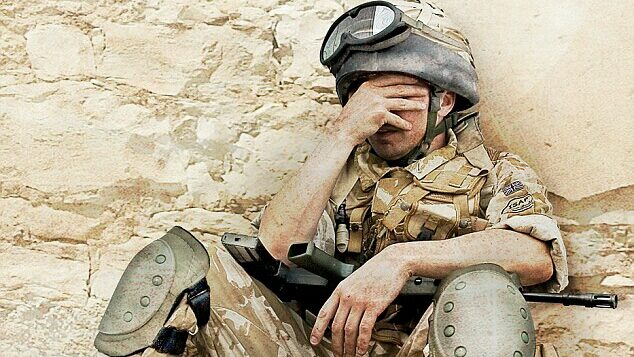In anticipation of Armed Forces Awareness Day approaching on Saturday, 29th June, Workplace Wellbeing Professional had the opportunity to speak with Michael Brash, the editor of Pathfinder magazine, about the mental health challenges faced by service personnel and veterans transitioning to civilian employment.
Pathfinder, a publication distributed by the Ministry of Defense, has been a vital resource for those in the resettlement period. With his background in ex-military recruitment and voluntary work for military charities, Michael is well-versed in the complexities and needs of this community.
What are the most significant mental health challenges service personnel and veterans face when transitioning to civilian employment?
The first thing to recognise is that it’s a transition unlike any other in terms of career changes. When you join the military, the military feeds you, houses you and clothes you; it’s a very regimented kind of life.
Even when people get married and have kids, they will often live on military bases in military housing, which is why support networks such as military wives and military wives choirs exist. It is a product of that type of life. Ultimately, there is this strong feeling that everything is being taken care of for you, which extends to the family.
So, when it comes to transitioning, these individuals will suddenly need to start thinking about finding a house, wondering where their kids will go to school, finding new employment, and working out what area to relocate to.
Abruptly, there are these anxieties that other people who are just changing from one job to another don’t have to consider. This process can produce a lot of stress.
What initiatives or programs have been most effective in promoting mental health and wellbeing among veterans in the workplace? Can you share any success stories or case studies?
The whole point of the resettlement period is to plan for this transition. Military personnel who are transitioning are fortunate in that they are given grants to pay for additional training and qualifications. That may be to amend what they’ve already got, or to qualify for a new job or a new field.
In terms of support, they have access to resettlement officers who are there to make sure they have a smooth transition, and that they get a job that works well with their experiences.
There is a perception that there is a mental health problem across the military but that’s not true. In the veteran population in Britain, the percentage of people who have PTSD is only a couple of percent more than the whole population of the UK.
That being said, there is still support out there, most notably from the NHS who have an initiative called OP Courage. This initiative offers support through professionals who work with veterans facing mental health problems, providing talking therapies and networks of support.
A lot of great work is also done by military charities. Huge successes have come from organisations like Help for Heroes and Combat Stress, who can provide medical interventions whether that be pharmaceutical or therapeutic. Additionally, they’ve had huge success in using sport for rehabilitation for both physical and mental issues. Whereas other charities, such as High Ground, use horticulture as therapy.
There’s still validity in counselling and talking therapies, or pharmaceutical interventions to help with issues such as PTSD, but I think more interestingly is the broader picture of support available.
Many veterans possess unique skills and experiences that can greatly benefit organisations. How can leaders better recognise these assets?
It falls into two categories: hard skills and soft skills.
Hard skills
People have a misconception about ex-military folk. People assume they’re just people with guns and tanks, but actually, a lot of armed forces possess many specialist technical skills.
These skills include cybersecurity, surgeons, mental health practitioners, IT, logistics and even incredible chefs who have cooked for royalty and heads of state. There is a huge breadth of specialist technical skills in a whole range of areas, even military people have lawyers!
Soft skills
Military personnel have remarkable values instilled in them. Imagine interviewing two candidates, one a veteran and the other not. While both may have the same technical skills, the veteran brings additional qualities such as self-reliance, resilience, a can-do attitude, and courage.
Military people are trained to face challenges head-on, to find solutions, to think on their feet, to pivot, and make it work. So there’s a huge advantage there which leaders should absolutely recognise.
With Armed Forces Day approaching, what actions can organisations take to raise awareness about the importance of mental health and wellbeing among their broader workforce?
Armed Forces Day is a great opportunity for everyone to come together and show support and respect. Not just for service personnel and veterans but for their families as well. Families play a huge role in military life and credit should be given to the organisations that are there to support military families. Armed Forces Day is about them as well.
On the Armed Forces Day website, there are assets that people can share on their social media and backgrounds (even for meetings like these!) which have messages of support that organisations can send out. They’ve also got hashtags people can use such as #SalutOurForces.
Ultimately, it’s about coming together and showing support and appreciation for people who do a really difficult job. One final thing – Military Wives Choir has just had a new single out – be sure to give it a listen!
This interview was conducted by Joanne Swann at Workplace Wellbeing Professional and was first published there 28 June 2024

